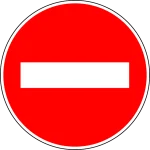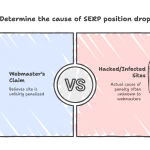There was a time when a website’s content didn’t matter all that much. As long as the SEO expert responsible for marketing it played nice with Google’s algorithms, it ranked high. Those days, however, are now far behind us.
Today, Google is much more selective. It carefully chooses which sites rank highest. Furthermore, Google is far harsher on tactics it considers underhanded.
That means if you engage in black hat SEO, Google will penalize you. If you let too much spam appear on your site, Google will penalize you.
And if your site consists of low-quality, ‘thin’ content, Google will penalize you.
Worse still, you might not immediately see a penalty. Google does notify webmasters of major penalties via Webmaster Tools. However, it also takes smaller actions against sites. And it doesn’t notify them about these smaller actions.
As such, you might be getting penalized. You might not even know you did something wrong. That’s not a pleasant thought, is it? The good news is this: if you’re careful, you can avoid the harsher penalties. Also, you can take action if smaller penalties hit you.
That’s what we’re here to discuss today. We’re going to cover the signs that indicate an SEO penalty. We’ll also discuss what options you have if you’ve received one.
Let’s begin.
Check Google Webmaster Tools
Your best bet in terms of SEO is to keep a constant eye on your site’s metrics. Thankfully, Google Webmaster Tools provides an excellent platform through which you can do so. Be sure to periodically check and see if you’ve any major warnings reported in Google Webmaster tools, advises BlueGrass managing director Kevin Gibbons, speaking to econsultancy.
“Keep a close eye on your organic search traffic and rankings to spot any recent drops in performance,” says Gibbons. “One thing I would highly recommend is link cleanups and frequent auditing for any site, whether penalized or not. You want to make your profile as clean as possible; prevention is definitely better than cure!”

When you do audit your site, be aware of the following signals and warning signs (via econsultancy):
- Drops in site traffic with no indication of recovery
- An unusual volume of bad links pointing to your site
- Market conditions that may have led to a drop in traffic – new competitors, other companies in your industry being penalized, etc.
- Unnatural/out of context links
- Overly keyword-rich anchors or over-targeted keywords.
- Low-quality sources
Use Third-Party Tracking Software
“With the right tracking tools, you can see almost immediately [when you’ve been hit],” says Intelligent Positioning Director Sam Silverwood-Cope. “There is a distinct difference in the pattern of the demise of a site between a penalty and an algorithmic hit. A penalty will most likely affect the whole site or whole sections of a site.
There are plenty of online tools that you can use to determine whether or not your site’s suffering. In addition to your regular SEO tracking software, consider making use of a platform like FE International’s Website Penalty Indicator.
Remember: Prevention Is The Best Tool
In general, if you do any bad SEO—like link farms, content tricks, or fake ads—Google will likely penalize you. It’s not if, but when. So, I’d strongly suggest avoiding SEO experts who promise too much, aren’t clear, or have bad online reviews.
Working with them will only harm your rankings in the long run.
“An SEO cannot guarantee a website will be number one for a specific keyword phrase in Google search. This is similar to how a billboard salesman can’t guarantee precisely 340,000 drivers will see an ad in a month.” writes Legal Ink’s Chris Dreyer.
“When choosing an SEO or online marketing agency, be skeptical of guarantees.” Beyond that, you also need to ensure your site is easy to navigate, with high-quality content, great links, proper targeting and well-designed ads.
Ultimately, if you’re doing everything you can to make your site as top-notch as possible, you really don’t have a whole lot to worry about at the end of the day – everything will sort itself out in due course.




